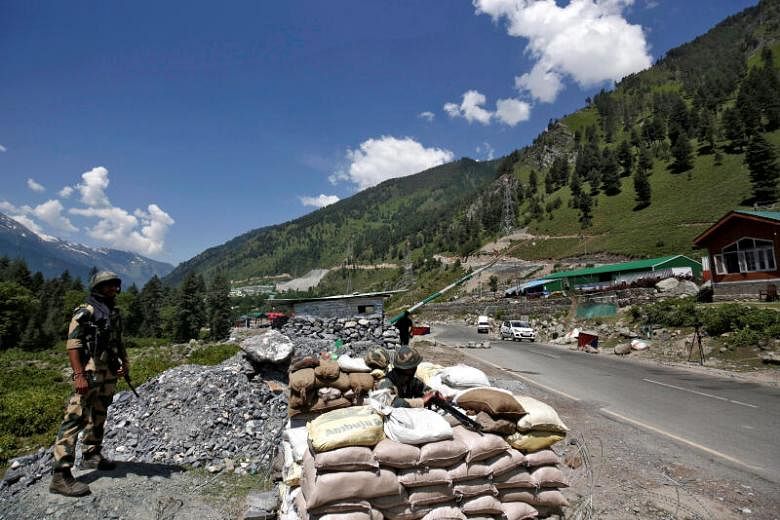NEW DELHI/BEIJING (BLOOMBERG) - Nationalist passions ran high on both sides of the contested China-India border as local and social media reacted to the deadly escalation in their weeks-long military standoff in the Himalayas.
It's unclear what sparked Monday's (June 15) violence that led to the first deaths in more than four decades at the border. India has confirmed 20 of its troops were killed, while Zhang Shuili, a military spokesman in China's western battle zone command, said in a statement that there had been casualties on both sides, but gave no further details.
In India, initial reactions appeared to tilt in favour of the army, rather than Prime Minister Narendra Modi, who saw his leadership openly questioned en-mass on social media for the first time.
In China, an editorial in the nationalist Global Times tabloid said India had misjudged Beijing on its will to defend itself against provocation, despite strategic pressure from the United States. The piece also said it was wrong for India's people to believe its military was more powerful than China's.
Chinese social media platforms were rife with information about the clashes reposted from foreign news outlets, including graphic images purportedly of soldiers' injuries.
Some social media users cited details in the reports on Indian casualties as evidence that India's troops were at a disadvantage compared to China's. Others posted video clips comparing recent military parades in the two countries.
"Although there is no official information on casualties on our side, the wording of the statement seems to suggest our casualties must be much smaller than the Indian side," Weibo user Zhang Yian posted.
Hu Xijin, the Global Times' editor-in-chief, called the move to refrain from releasing details "goodwill from Beijing" and said China didn't want the two countries to compare casualties to "avoid stoking public mood."
Some of India's English and Hindi-language television channels known to take a pro-government stand played the news of the deadly turn of events as a tough test for Modi.
At least one channel tried to deflect blame away from Modi's government and on to the army.
"The Chinese army entered our territory and we were caught sleeping. This isn't a question for the government. This is a question for the army because the job of patrolling is the army's, not the government's," Shweta Singh, an anchor with the Hindi-language AajTak news channel, reported on Tuesday night.
Popular sentiment almost always runs in support of the armed forces in India, and there was swift backlash to her report, with the hashtag "apologise to the army AajTak" trending with more than 30,000 tweets on Wednesday morning.
Modi has so far enjoyed largely unquestioned popular and nationalist support. His Bharatiya Janata Party, known for its effective use of social media, has been fighting back against the social media criticism.
On Tuesday evening, as the first details emerged of the deaths of the Indian soldiers, the hashtag "#WeakestPMModi" had more than 23,000 tweets. But by Wednesday morning, it was gone.
No Indian government minister, including Modi, has yet commented on the clash. Their silence was in sharp contrast to New Delhi's response when similar tensions have erupted on India's border with Pakistan.

